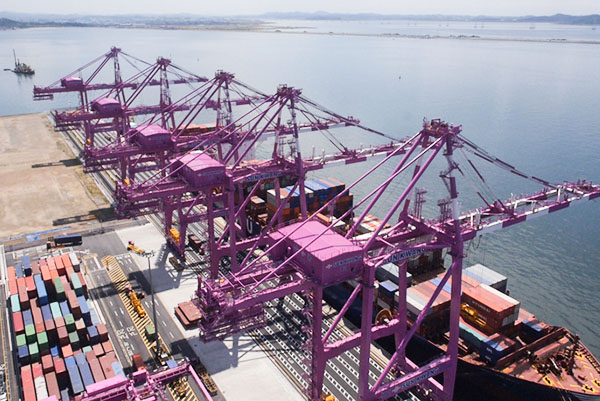IRISL’s HDM Loop service, which called at the port of Busan in February for the first time since 2012, will now connect the Iranian ports of Bandar Abbas and Asaluyeh with South Korea’s Incheon Port and Gwangyang port. The service also calls at Qingdao, Tianjin, Dalian and Shanghai in China, and Jebel Ali in Dubai on its return voyage to Iran, according to the South Korean news source.
“We believe that Iran will be the starting point for opening a new Silk Road to expand trade with Iran’s neighbouring countries, like the Middle Eastern countries, as well as Kazakhstan and Uzbekistan,” said Yoo Chang-keun, president of the Incheon Port Authority, announcing the launch of the new service.
The addition of the service comes in the wake of increasing high-level contacts between political and business figures of the two countries, including an early May visit to Tehran by South Korean President Park Geun-hye, accompanied by a delegation of 230 business executives.
Trade between South Korea and Iran is currently valued at around $6.1bn per year compared with a pre-sanctions high of $17.4bn in 2011.
Container traffic between the two countries at that time was around 180,000 twenty-foot-equivalent units annually, with much of it carried on IRISL’s thrice-weekly service calling at Busan and Gwangyang, which was halted after the introduction of sanctions in 2012.
Busan Port Authority said it expects the number of containers shipped between the two countries to rise quickly to around 100,000 per year from around 40,000 at the moment.
Automotive parts, construction materials, food supplies, cosmetics, home appliances and household items are expected to make up the majority of cargo shipped from South Korea to Iran.
“I am pleased to see the opening of the new route connecting Incheon Port to the Middle East in the wake of restarting the economic cooperation between the two countries,” said G.H. Zahmatkesh, chief executive officer of Compass Maritime, IRISL’s South Korean agency. The new link will boost trade volumes between South Korea, Iran and Central Asia, he said.
IRISL Managing Director Mohammad Saeedi said he expected a regular direct connection with Japan would be launched shortly.
It was reported last week that Iran would place billions of dollars’ worth of orders for ships and rigs from South Korean shipyards as it seeks to upgrade its aging national fleet.
IRISL is understood to be in talks with Hyundai Heavy Industries to build as many as six 14,500-TEU container ships. A memorandum of understanding has also been signed with Hyundai Heavy subsidiary, Hyundai Mipo Dockyard, for 10 petroleum-product tankers, worth around $30m each, and six handysize bulk carriers worth around $20m each.
